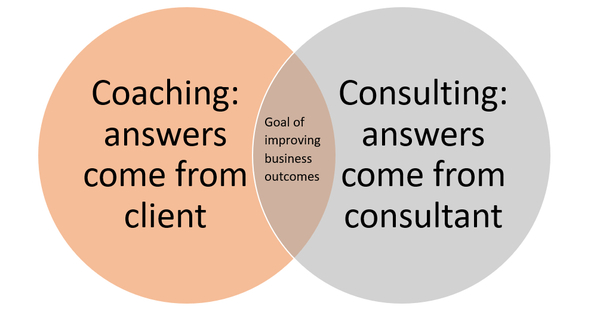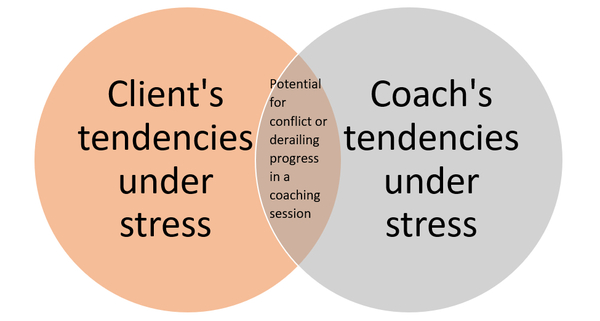THE WORLD’S #1 EXECUTIVE COACHING AND BUSINESS COACHING BLOG SINCE 2017.
The Definitive Guide to What Coach Training Can’t Teach You
Published On: March 26, 2019 | Last updated on: January 10, 2025 | Author: John Mattone | Category: Blog, Executive Coaching
It is nearly impossible to overstate the importance of coach training.

Coach training has advanced significantly, and outstanding coach training programs are available.
Coaching is an activity that helps individuals and groups thrive, from the community center basketball league to the pinnacle of world-class corporations. And while some people gravitate toward or have a more natural affinity for coaching, it’s not an inborn talent. Learning how to coach is the key to being an effective coach.
Coaching is a partnership that is creative and thought-provoking. When done well, it inspires people to maximize and fulfill their potential. It is distinct from teaching, mentoring, and training yet makes teaching, mentoring, and training more effective.
And coaching works. An ICF (International Coach Federation) study found that clients improve their work performance, time management, and business management while discovering more opportunities. They report higher self-confidence, better relationships, and better communication. The median financial benefit from coaching is an ROI of more than three times the amount invested in coaching!
Naturally, if you’re going to invest in coaching, you want a coach who has undergone rigorous training in an accredited program, and who has the necessary skills and experience to perform exceptionally. But there are some things that coach training can’t teach, just as there are some things medical training can’t teach. The aspiring coach who completes training has made a start, but there is much more he or she must learn to do either through practice or with the help of other types of professionals.
The Nuts and Bolts of Running a Coaching Business
Practice management is increasingly being taught in advanced professional schools, and with good reason. Doctors, lawyers, and other professionals must understand the fundamentals of how to manage a business, or they won’t be able to practice their vocation. Even the solo practitioner coach running their business from a home office has to know how to keep records, how to deal with tax issues, and how to market their business.
In fact, a lack of marketing skill and practice are primary reasons why coaches struggle to succeed. It’s not easy to promote oneself as someone who can confer value. And marketing is demanding. You must know which marketing channels to use, how to craft pitches of varying lengths for different scenarios, and you have to be willing to look for opportunities to market and seize them. Establishing oneself as an expert, attracting attention to the coaching business, and doing the hard work of closing deals are things even the most well-meaning and ambitious aspiring coach won’t know how to do naturally.
And coach training, while likely emphasizing the role of passion in leadership and leadership coaching, may gloss over the fact that passion doesn’t equal profit. Amassing a strong client list is incredibly hard work, and many a coach maintains a day job or side job while establishing the coaching business. You have to be willing to hustle, and you have to make time to learn how to operate a profitable business. These are generally things you will learn outside the coach training program.
How to Understand the Gap Between Where the Client Is and Wants to Be
The effective coach must commit to seeing the reality of where their client is, and where they want to be. Going into an initial meeting with preconceived ideas is at best a temporary stumbling block, and at worst a disaster for the coaching relationship. Honesty and communication must be established immediately in order for the coach to see what the client’s “point A” and “point B” are – let alone to work out a plan for how to get there.
Together, coach and client determine where they are, where they want to go, and how to get there.
Leadership coaches typically enter the coaching relationship with assessment tools designed to help establish point A and point B, and they can be tremendously helpful. But there are some things that even the best-designed assessment tools cannot do. They can’t look the client in the eye and see that there is something deeper going on, and they can’t account for circumstances outside the client’s control, such as company legal issues, hiring problems, or other systemic business problems.
Neither can tools replace the wisdom required for conceptualizing and articulating a plan of action with the client. Assessment tools can offer help, but creating a clear and efficient pathway to achieving goals is a process that must be worked out and agreed upon between the coach and the client. When early tasks in the coach-client relationship aren’t attended to meticulously, progress may be halting or tangential, and it will take longer to make progress toward goals.
Coaching “Presence” and Equality with the Client
From their very first client interaction in their very first coaching engagement, the coach must demonstrate a presence of equality with the client. Coaching is a partnership. Think about other successful partnerships in your life. They probably involve a sense of “being in it together,” as well as a sense of equality, and also indefinable chemistry or rapport. All of those are necessary to the coaching relationship as well.
This can be difficult for the new coach who is working with a CEO or other high-level leader. The coach must be willing and able to sit down with a high-level leader, talk as equals, ask challenging questions and in some cases, give difficult feedback. It takes confidence! In these situations, the coach must recall their training, and understand that they have something that the client needs. This is one reason why strong rapport between coach and client must be present. If honest communication isn’t present right from the start, it must be established as soon as possible, or the coaching engagement won’t deliver results.
There are many ways the new coach can develop their presence and develop the confidence needed when addressing high-ranking leaders. Public speaking courses or lessons can be particularly effective for developing presence and self-assurance. Regular practice through participation in local business associations, Chamber of Commerce, or Toastmasters groups can sharpen these skills and help make them second-nature. Nothing, however, can take the place of practice and experience, and these will develop with each successive coaching engagement.
How to Turn Intellectual Property into Products
Even if you maintain a day job or side job while launching your coaching business, you presumably want the coaching business to pay the bills by itself. Coaching engagements, obviously, are where you want the bulk of your income to come from. But you’ll find that the world’s most successful leadership coaches almost without exception do something more: they find ways to turn their hard-earned intellectual property into income streams that supplement their coaching business while helping market it as well.
It’s not uncommon for coaches to write books or book speaking gigs that showcase their hard-won knowledge and experience, but there are other ways of turning intellectual property into products. Paid webinars, online courses, and video series are other ways coaches can supplement their coaching income while effectively marketing their coaching services.
Another way that coaches monetize their unique skills mix is to specialize their coaching services. Some may promote themselves as leadership coaches in particular industries, like healthcare or hospitality. Others may offer smaller coaching packages that are designed to address a specific need. They may, for example, develop a niche coaching program around a specific skill, like resume writing. Whatever they do to maximize the potential of their intellectual property, successful coaches use these techniques to supplement income as well as to market their core coaching services.
The Difference Between Coaching and Consulting
The primary differences between coaching and consulting have to do with where the subject matter expertise lies and where the “answers” come from.
A key difference between coaching and consulting is where answers to issues are expected to come from.
A coach is someone whose subject matter expertise is in coaching. That person may coach clients who work in many different industries. A consultant, on the other hand, is hired for their subject matter expertise in a given industry, or a given aspect of business (such as turning around a struggling business).
In coaching, both coach and client understand that any answers come from within the client, and not from the coach. The coach can advise on techniques and can help the client practice those techniques, but their job is not to tell the client how to bridge the gap between where they are and where they want to be.
By contrast, people turn to consultants for answers. They are paid for their expert opinions or advice and are expected to understand the problem and present possible solutions. They may even advise on which solution is the best one. But they’re not there to facilitate a leader’s development of strong leadership or to help a leader address a leadership skills gap.
A recent study by researchers at EDHEC Business School in France and the International Centre for Leadership Coaching found that when asked to “coach,” managers without coach training tended to demonstrate consulting rather than coaching. It’s a fine distinction, and one that coach training programs may discuss, but when it comes to actual practice, it’s essential that coaches understand what they are and are not being hired to do.
The Importance of Practice, Especially at First
It’s the conundrum of any professional starting their own practice. They know they must build experience to get better, but it’s hard to attract clientele without having experience. Furthermore, building any professional skill, from arguing court cases to coaching leaders requires consistent, long-term practice.
Specifically, coaches must practice these key skills:
- Listening
- Asking questions
- Providing feedback
- Helping with the setting of goals
- Demonstrating empathy
- Allowing others to arrive at their own answers
- Recognizing strengths
- Providing structure for addressing skills gaps
- Using a solutions-focused approach
Ideally, coach training programs help coaches in training practice these skills in a safe environment before sending them into the world as coaches. That’s necessary, but not sufficient. To practice and hone these skills, aspiring coaches may need to take matters into their own hands. They may need to seek out and take continuing education classes or join (or create) local coach organizations where members can get together to practice key skills as well as trade ideas.
Continuing education, community organizations, and networks help coaches keep their skills sharp.
People are said to “practice” professions like medicine and law because they never fully master every aspect of them. They can’t, because professions evolve and knowledge advances. The same is true of coaching. The ones that have long and distinguished careers are the ones that commit to continued education from the start. Continuing education not only provides necessary learning and practicing opportunities, it can also strengthen and extend professional networks.
Why a Clear Coaching Contract Is Essential
Certainly, coach training covers the coaching contract. For coach and client to engage well, both must be clear on the client’s desired outcome, both long term and for individual sessions. Constructing that contract, however, can be far from straightforward.
It’s not always easy to tease apart the client’s concerns that are and are not coaching-related. A coach, after all, is not a therapist or a mentor. But since coaches are trained in the importance of empathy, of compassion, of emotional intelligence, it’s only natural that some clients will use that “safe space” in ways that are unrelated to coaching. That’s why it’s so critical that coaches be absolutely intentional about establishing the coaching contract.
Likewise, individual coaching sessions may not start out with the client fully present and ready for coaching. The coach must be able to acknowledge this and do what is necessary to get the coaching session on track. It may be as simple as asking, “What do you need to get off your chest in order to be fully present for this session?”
The overall coaching contract is carried out through a series of coaching sessions. Each coaching session has its own (whether prescribed or unspoken) contract for what the client wants to accomplish. Ensuring that this happens takes practice on the part of the coach.
Beginning the session with a mutual statement of what they want to accomplish together at this time can help keep coaching on track and productive. The overall coaching contract is essential in both business and relationship terms. But each session is its own contract, and it is the experience and skill of the coach that ensures it is fulfilled as well.
Understanding One’s Own Tendencies in the Coaching Relationship
Effective coaches understand themselves keenly. They know their own personality traits, their own strengths and weaknesses, and their own tendencies in times of stress. Not only must the coach help the client keep coaching sessions on track and productive, they must also be aware of their own tendencies, attitudes, and actions that can push a session off track.
Self-awareness can prevent coaches from stress responses that can take a coaching session off-track.
Many coach training programs have participants use the very assessment tools on themselves that they will use on clients in practice. This is important as a training exercise, but it is also important as a way for aspiring coaches to gain insight into their own characteristics and how they can affect the coaching relationship.
Over time, a coach will come to recognize how they respond to the stresses that inevitably arise over the course of a coaching term. Maybe their response to a difficult session is to make to-do lists with the client. Maybe their response is to take a short break and come back to the session after a few moments of head-clearing. But they must not mistake their own coping mechanisms as effective coaching, because what works for them may not work for their client.
Self-awareness is an indispensable attribute of outstanding coaches because they are able to recognize their own responses to stressful situations and avoid imposing their personal coping mechanisms onto clients and potentially derailing a session.
Conclusion
I am endlessly grateful that we live in a time when aspiring coaches from all over the world have access to outstanding coach training. Not only that, bodies like the ICF help aspiring coaches choose the right program for their needs and help minimize the damage that dishonest coach training can cause. Never before have we had resources and access to coach training programs and materials, and that is of tremendous benefit to coaches and their clients.
At the same time, just as other types of professional training can’t possibly cover everything, even the most outstanding coach training programs can’t teach everything there is to know about practicing as a leadership coach. It’s absolutely essential that aspiring coaches understand what can and cannot be learned from coach training and to make a deliberate effort to learn key skills about running a business, demonstrating equal footing with clients, maximizing the value of intellectual property, and so on.
Some coaching skills are developed in the field, with regular practice.
Are you an aspiring leadership coach, or someone who is just starting out? I encourage you to check out my books, which take a deeper dive into the topics of leadership, coaching, and cultural transformation. And I also invite you to learn more about my leadership coaching services, which include an ICF-accredited certification program in executive coaching based on Intelligent Leadership.
Glossary of Terms
Coach training – formal learning programs that teach the coaching process. Such programs include the teaching of skills like using client assessments, coaching techniques, overcoming challenges in the coach-client relationship, and crafting coach-client contracts.
Coaching contract – a contract signed by both coach and client that defines the coach-client relationship, spells out which assessment techniques will be used and when, spells out what coaching is and is not, scheduling, fees, confidentiality, and more
ICF – the International Coach Federation, the leading global organization for advancing the coaching profession through the creation of standards, provision of certification, and maintenance of a worldwide network of trained coaching professionals
ICF accreditation – a process that coach training programs may undergo that assures that the program aligns with ICF core competencies for coaches as well as the ICF code of ethics. Obtaining accreditation requires completing a rigorous review process by the ICF
Intellectual property – works or inventions that are the result of creativity. It may include books, artwork, software, assessment tools, webinars, or other products created due to experience and expertise in a particular field, and may be sold or licensed for profit.






